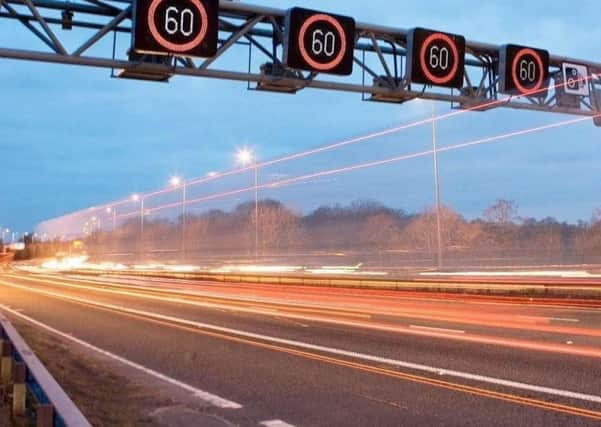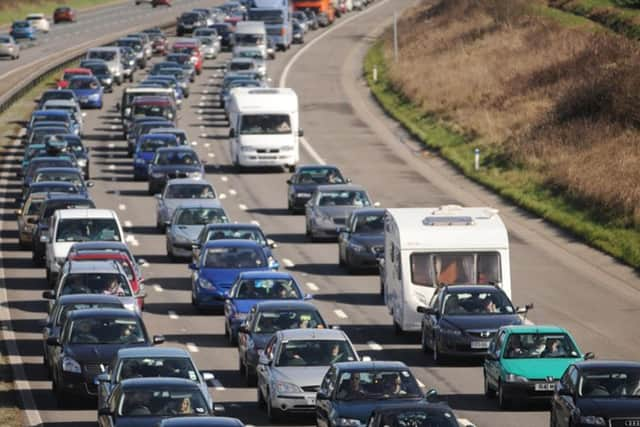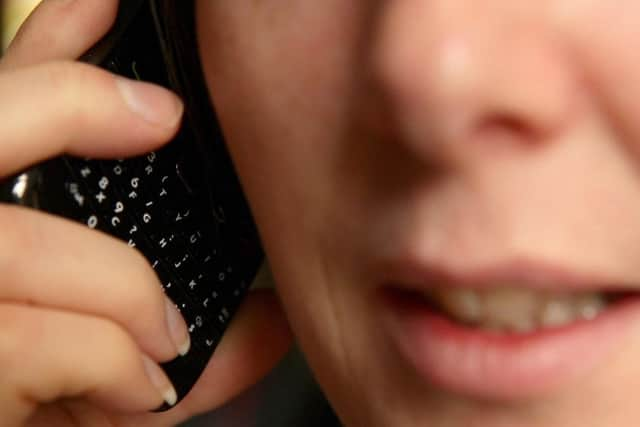Why cash-driven cameras on ‘Big Brother’ motorways are a risk to the innocent – Jayne Dowle


You wouldn’t dream of attempting to text anyone or make a call. You consider yourself to be a careful and responsible driver. However, what feels like innocent behaviour could land you with a hefty fine of £200, six penalty points and, if you passed your test within the last two years, you’ll lose your licence.
Advertisement
Hide AdAdvertisement
Hide AdSince March 2017, motorists caught using a hand-held phone behind the wheel have faced serious consequences; the law was changed almost three years ago to increase the punishment from the previous penalty of three points and £100.


It was a controversial policy at the time, but clearly this heavy-handed approach has not brought the results expected by Ministers and police forces.
Advertisement
Hide AdAdvertisement
Hide AdAlthough 11 million drivers admit to using their phone whilst driving, fewer than two people are convicted for operating a hand-held device at the wheel each hour.


This research found that only around 13,000 motorists are convicted for using – or causing others to use – a mobile phone when they’re at the controls of a car in Britain each year, resulting in combined fines of just £2m annually. It doesn’t take a Department for Transport analyst to work out that this conviction rate is pretty abysmal.
It’s clear that the message that messing about with a mobile phone when driving is unsafe is not getting through, given that millions of people still do it all the time.
Something has to be done, so now highly-responsive HD cameras which detect people even touching their mobile phones at the wheel are being trialled on Britain’s motorways.
Advertisement
Hide AdAdvertisement
Hide AdAs things stand, police officers have to actually catch you in the act of calling, texting or involved in some kind of ‘interactive communication’ to bring a successful charge.
The definition of ‘interactive communication’ is a matter of debate. Last year, motorist Ramsey Barreto successfully appealed against a conviction for filming the scene of a crash while driving after his lawyers argued the rules only relate to using a phone for ‘interactive communication’, not simply holding the handset.
However, the Government wants to close this loophole so anyone spotted texting, taking photos, browsing the internet, scrolling through a music playlist or doing anything else on their phone behind the wheel can be prosecuted.
How to do this when police forces are under pressure and lack the manpower to stop and apprehend motorists personally? Bingo: these super-hi-tech overhead cameras can do their job for them and provide irrefutable evidence of transgressions.
Advertisement
Hide AdAdvertisement
Hide AdBut here comes the caveat. What happens if the motorist had broken down in a moving lane of traffic on a smart motorway? I checked the RAC’s advice, and if you can’t exit your vehicle safely in such a situation, you must sit tight, fasten your seatbelt and dial 999.
The problem with technology is that it can’t judge nuance. If this makes you feel that Big Brother could be breathing down your neck on the M1, you’re not alone.
It’s happening Down Under, too. This week, New South Wales, the country’s most populous area, has become the first Australian state to introduce laws which enable camera-based enforcement of illegal mobile phone use.
This crackdown follows a six-month state-wide trial when 8.5 million vehicles were scanned and more than 100,000 motorists were caught in the act.
Advertisement
Hide AdAdvertisement
Hide AdIt’s a little-known fact – I only know because I used to do educational work for students with the Huddersfield-based road safety charity, Brake – but Australia is a global pioneer for safer driving.
If you want to grasp the full horror of irresponsible road use track down an online educational video produced by the Australian Road Safety Foundation (ARSF). Let’s just say they pull no punches; my students were left traumatised by the sight of body parts scattered everywhere.
As I remind my 17-year-old son every time he’s going out in a car with his friends, there is much to be said for an upfront attitude to safe driving. And there is so much at stake, including loss of life or permanent disability.
In the past six months alone, two motorcyclists have been killed on the road literally outside our house; I don’t want to see another line of blue and white police tape and flowers left by the roadside ever again, if possible.
Advertisement
Hide AdAdvertisement
Hide AdI would never argue against anything which made driving safer. However, I will always argue against surveillance which purports to be useful but invades our privacy and turns us all into potential cash-cows.